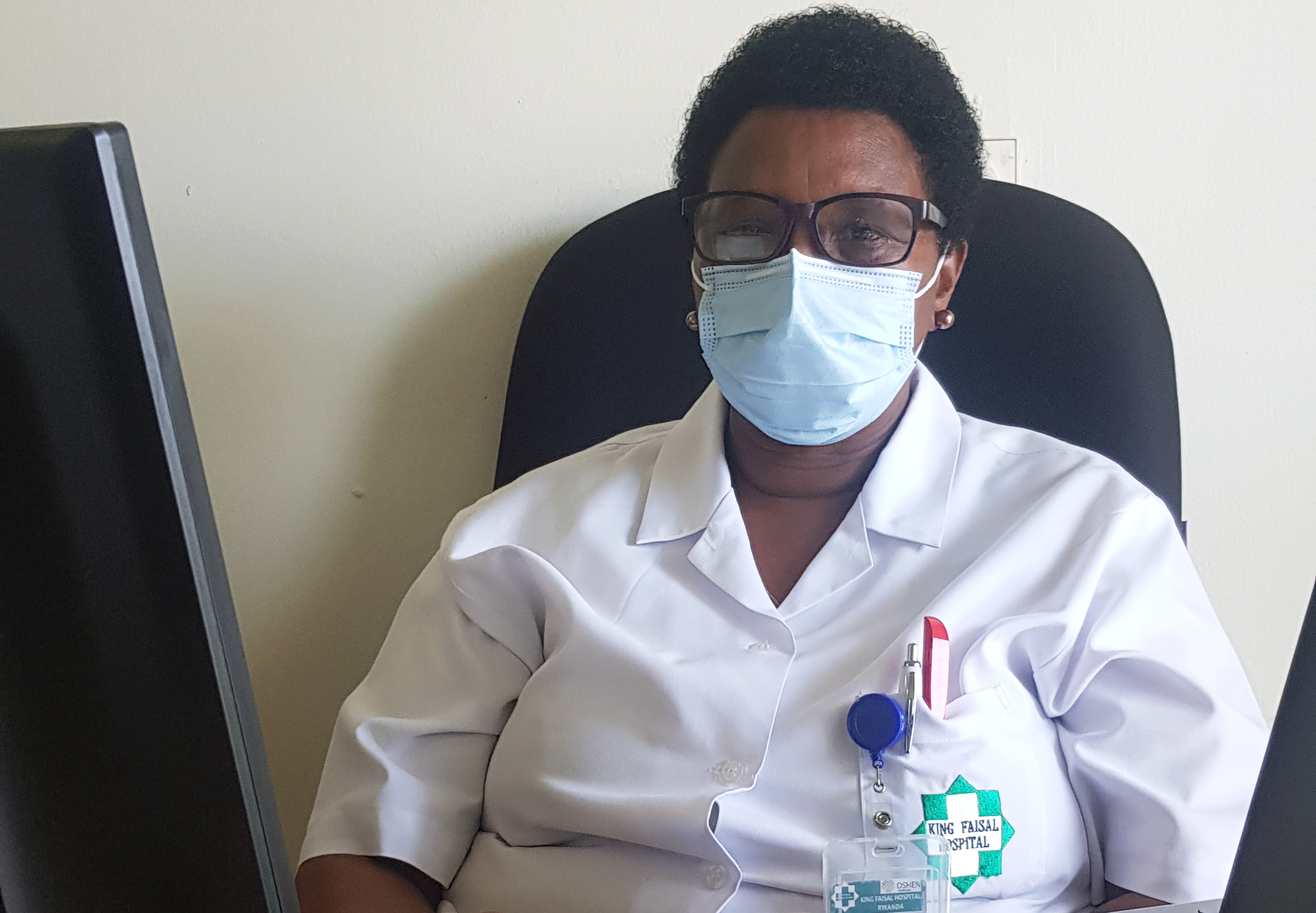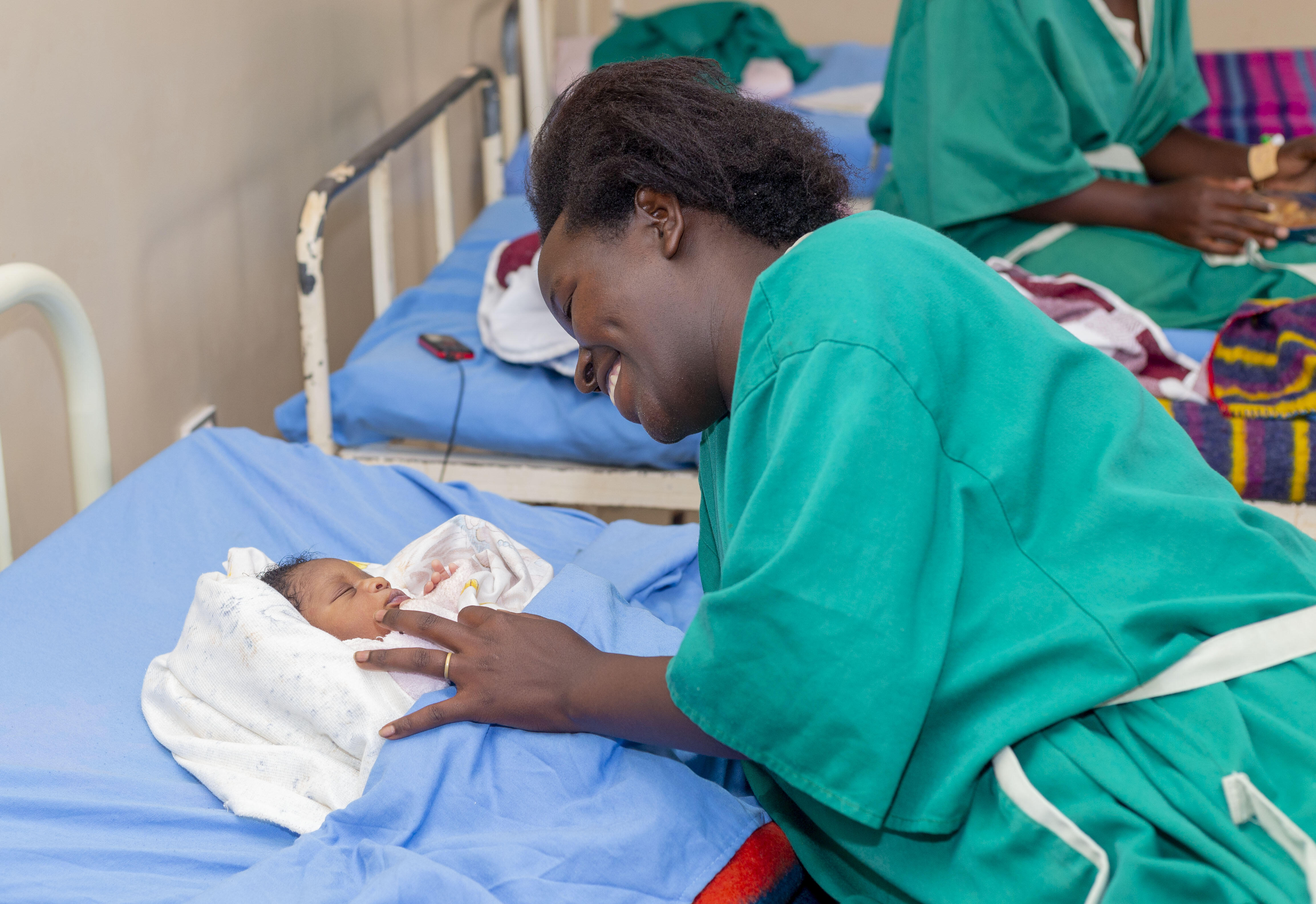Rwanda: Women leaders on the frontlines of the COVID-19 response
On March 8, Rwanda joined the rest of the world in celebrating the International Women's Day under the theme: “Women in leadership: Achieving an equal future in a COVID-19 world”. 2021 Women’s day was an opportunity to celebrate the tremendous efforts by women and girls around the world in shaping a more equal future and recovery from the COVID-19 pandemic and highlights the gaps that remain.
Throughout the COVID-19 crisis, women have kept entire societies going, sustaining health systems as the majority of front-line workers, and courageously managing extra responsibilities at home in caring for the ill as well as children out of school. As the battle against COVID-19 continues, women continue to get pregnant and babies are still being born. Childbirth doesn't stop for pandemics, and neither do midwives. Midwives are working tirelessly on the front line in hospitals and health centers, risking their own lives and wellbeing to save the lives of women and newborns.
Josephine Murekezi, the President of Rwanda Midwives Association and the Director of Nursing services in maternal child and women health at King Faisal Hospital, says that during the beginning of Covid19 pandemic, midwives faced many obstacles including shortage of staff, some of them were infected by patients despite strict measures taken.
“Covid19 has given us a lot of work. Everyone was afraid of getting infected because we were not prepared and were used to meet a lot of people. A large number of mothers we received, did not know their status if they were infected or not because they had not been tested.” Said Josephine Murekezi
The Rwanda Midwives Association she is leading is made up of 2215 midwives both men and women, who are the backbone of maternal health system in Rwanda, delivering babies and much more.
“We were challenged by the fact that there was no cure nor vaccine of Covid19 available at that time, but we stayed encouraged to not stop helping mothers and patients who needed us day by day.” Said Murekezi.

Josephine Murekezi, the President of Rwanda Midwives Association
“In this time of the pandemic, I have learned that one has to be always ready at all times. As midwives, we have to adapt and be prepared to go through any situation successfully. Adhere to the rules and strive to achieve your goals without breaching the procedures.” She added.
Through networking, Murekezi took care of the midwives she is leading on a daily basis. She managed to reach out to funding partners who supported the association with training and tools for beginners. As of now, Murekezi is sure that no one can leave the job because of lack of covid19 personal protective equipment.
“With the support from UNFPA and other partners, Rwandan midwives have been trained on Covid19 prevention while on duty and were provided with protection equipment to prevent the spread of the virus among midwives.” She said.
“A midwife’s happiness comes from seeing a mother, who came seeking assistance, give birth and go back home happy even when she is Covid19 positive and has to go back in isolation”. She insists.
As a woman and a leader, Josephine MUREKEZI urges other women to work hard, with determination to achieve their goals.
“Women should keep working hard. We can achieve everything we want when we work together. We are capable, we can achieve success. We have done it, we still can”. Stated Murekezi
UNFPA applauds the work of all midwives, and has pledged to stand by them, working with the government to protect midwives from COVID-19.
“UNFPA is supporting midwives on the front lines of the COVID-19 response by providing supplies and personal protective equipment; strengthening the capacity of health systems to ensure that maternity services don't get left behind; and supporting the national response to ensure that pregnant women, including those who test positive, get the care they need when they need it” Mark Bryan Schreiner, UNFPA Representative to Rwanda


